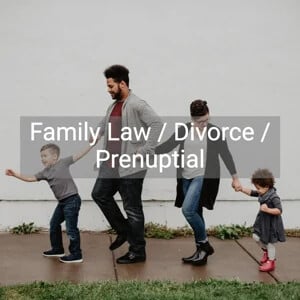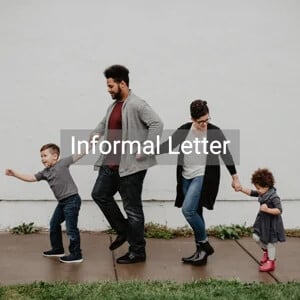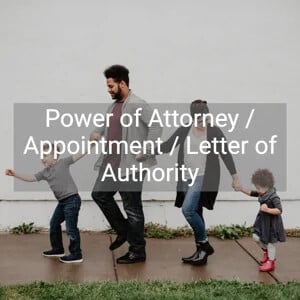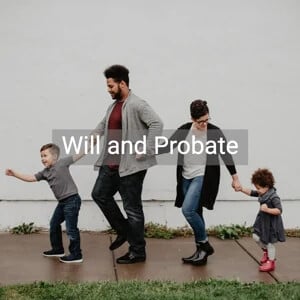Will and Probate


A Will sets out how a person's assets are to be distributed after his or her death. Any person over the age of 18 may make a Will.
If a person makes a Will, he/she can:-
One can make a Will through the forms provided, or seek help from a solicitor. The advantages of going to a solicitor are:
The following formalities should be followed for the Will:
The essential requirements of a Power of Attorney are as follows:
A Living Will is different from a Last Will and Testament. It is an essential document that is very often overlooked. It is a document that lets people state their wishes for end-of-life medical care, or how to manage their financial affairs, in case they become incapacitated / lack mental capacity / unable to communicate their decisions. This will also benefit their loved ones, who often have to make decisions on their behalf when patients get sicker or are not able to express themselves, by easing the burden of decision-making because they know more about what their patient wants. The Living Will generally has no power after death. A living will be revoked at any time. The document can take effect as soon as it’s signed, or only when it’s determined that the person can no longer communicate his or her wishes about treatment.
There are various different types of Living Will one can enter into:
Advance directives set out how the patients want to be treated if they become seriously ill and unable to communicate their wishes. Depending on the jurisdiction, there may or may not be legislation to give such requests legal standing. Demands could include, for example, not being given cardiopulmonary resuscitation if such a situation arises.
Advance Directives may or may not be a legally binding document depending on the jurisdiction, but the doctors will generally follow the stated wishes or assign the case to another doctor if the wishes go against the doctor's professional beliefs.
To be valid, advance directives must meet the local requirements regarding notarization or witnesses. For example, a witness must not be a person who is a beneficiary under –
Or one of the witnesses must be a medical practitioner etc. Please consult a local lawyer as each jurisdiction may be different.
Some individuals may not be ready to make the decisions but wish someone else to make the decisions on their behalf. Please refer to the Power of Attorney Category for more information.
Where people can't envisage the dying phase, they may have what they call a statement of wishes. These are broad statements of wishes in terms of what they want to have in the later part of life. One can communicate their goals of care, such as enjoying an improved quality of life, more and earlier hospice care, or care to enable them to remain in their homes, etc.
Another use for a statement of wishes is to supplement a Will. One may wish to keep the two statements separate and have the statement of wishes relating to the Will kept with the will and remain confidential until death. The contents of a statement of wishes are generally not legally binding.
The following table is a quick reference guide:
|
Documents |
When to Use |
|
Last Will and Testament with Spouse and Children |
Last Will and Testament made by an individual with spouse and children. Give everything to the spouse first, but if a spouse died first, give all to children in equal share. |
|
Last Will and Testament with Children and No Spouse |
Last Will and Testament made by an individual with children but no spouse. Give everything to children and their descendants in equal shares. |
|
Last Will and Testament with Spouse and No Children |
Last Will and Testament made by an individual with a spouse but no children. Give everything to a spouse but if a spouse died first, give everything to a designated charity / in accordance with the law of intestacy. |
|
Last Will and Testament with No Spouse and No Children |
Last Will and Testament made by an individual with no children and no spouse. Give everything to siblings and their descendants, otherwise give everything to designated charity / in accordance with the laws of intestacy. |
|
Living Will - Advance Directives |
Advance directives set out how the patient wants to be treated if they become seriously ill and unable to communicate their wishes. In many jurisdictions, it must be witnessed by a medical practitioner and people who are not beneficiaries of the Will. |
|
Statement / Letter of Wishes - Will and Testament |
Statement/letter of wishes to provide general guidance to the executor and set out the reasons for distribution. While the document is not legally binding, it can have strong moral sway. This is particularly important where there could be potential challenges to the will in case of unequal distributions. |
|
Statement / Letter of Wishes - Trustee of Trust Fund |
Statement/letter of wishes to provide general guidance to the Trustee on the distribution of the Trust Fund and set out the reasons for distribution. While the document is not legally binding, it can have strong moral sway. |
|
Statement / Letter of Wishes - Medical and Care |
Statement/letter of wishes to provide general guidance to the carer and set out any preferences on medical and end-of-term care. Whilst this may not be legally binding, the carer will generally try to fulfil such wishes. |

15 Nov 2022
5 min read

22 Jan 2021
6 min read

1 May 2020
11 min read

26 Nov 2019
8 min read

5 Nov 2019
6 min read

24 Oct 2019
3 min read






Not the right document?
Don’t worry, we have thousands of documents for you to choose from: